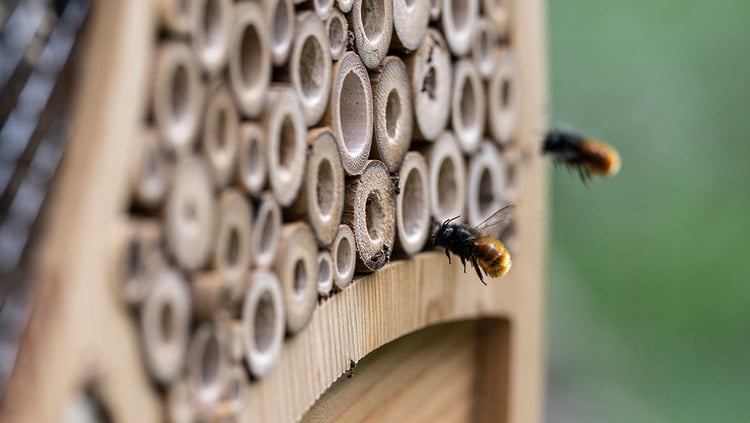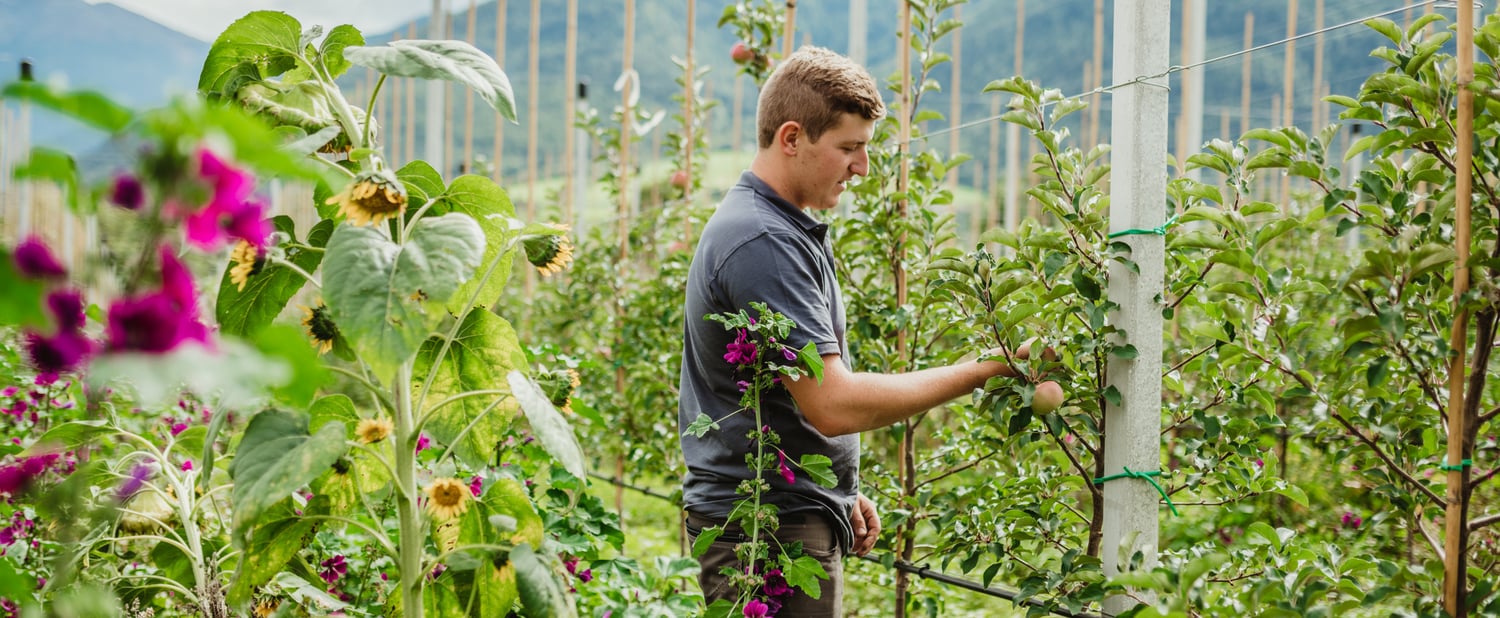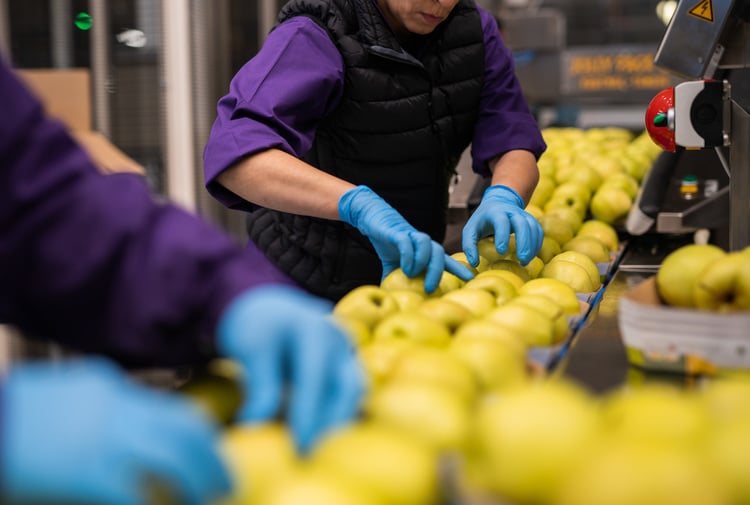
We promote biodiversity
How can the ecosystem not only be protected but sustainably promoted? The farmers of Vinschgau have learned over the years: They build dry stone walls and insect hotels, provide nesting opportunities, create flowering strips, and thus ensure that their orchards offer plenty of refuges and habitats for animals and plants. The reward: lively orchards and enough beneficial insects to naturally keep pests at bay. We also work closely with Vinschgau beekeepers to implement bee protection projects. For example, we have already established several bee pastures in Vinschgau in collaboration or support bee-friendly farming.





